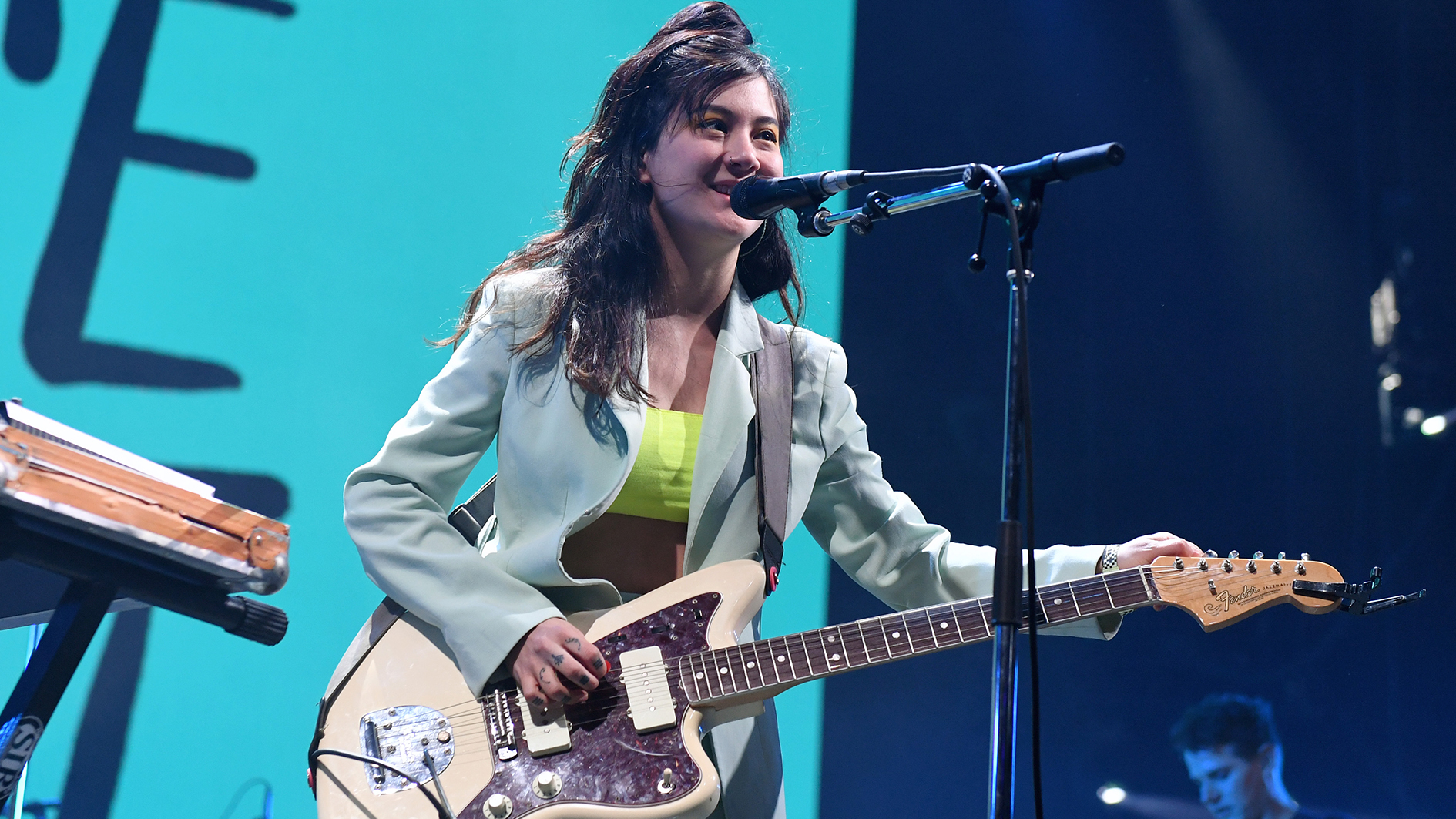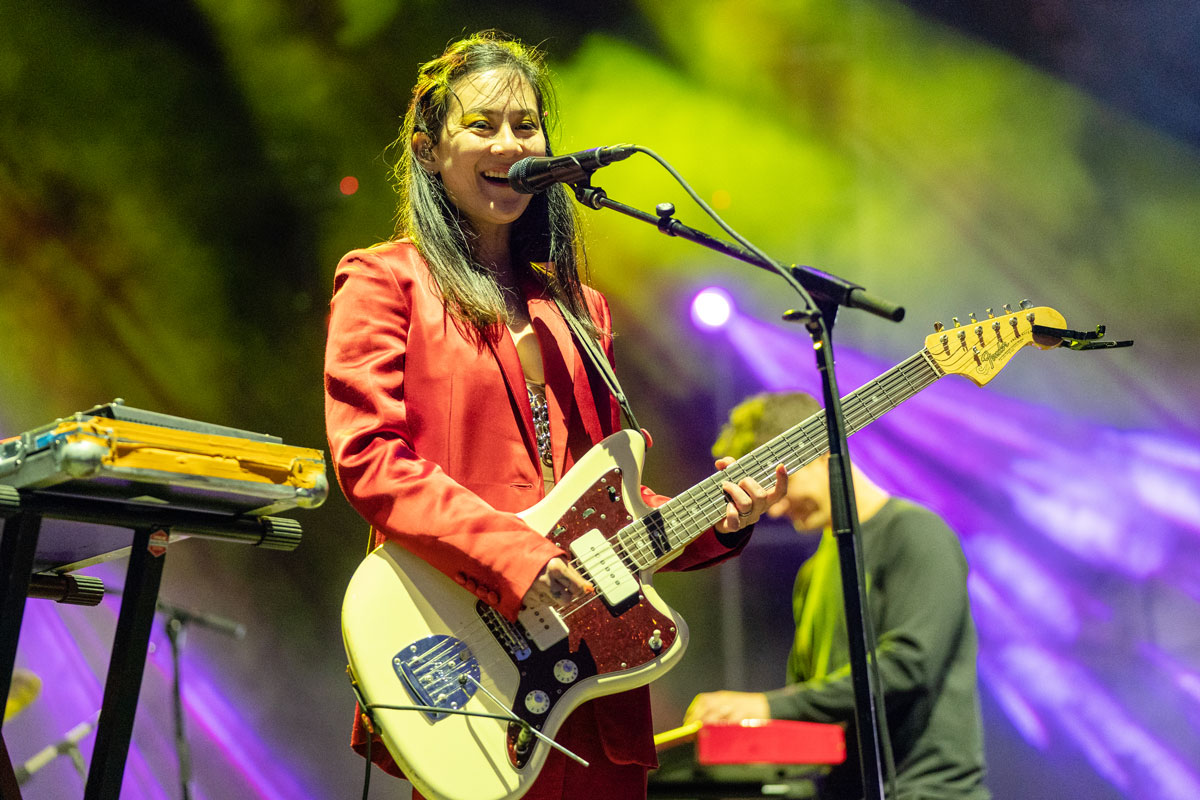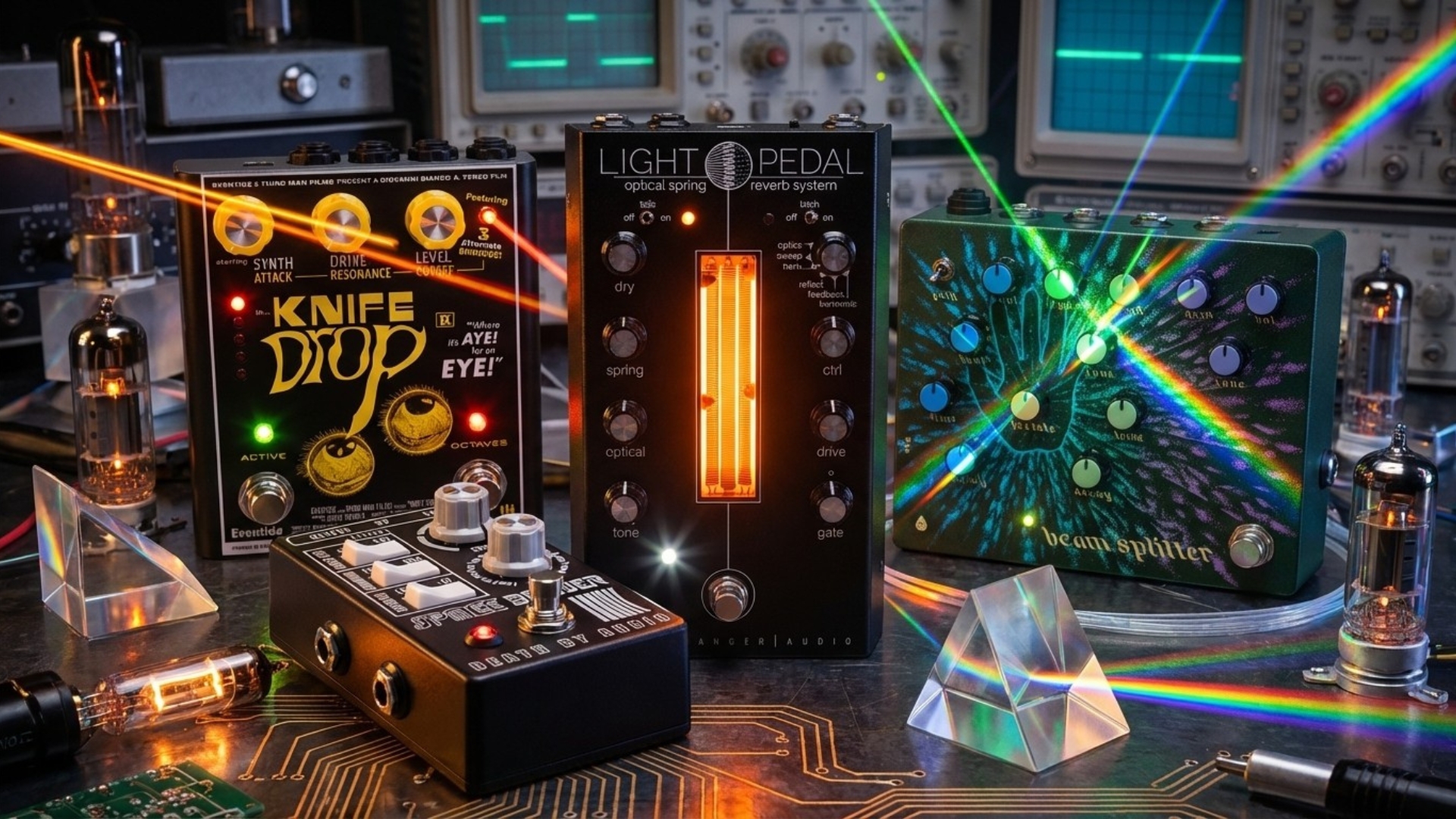Michelle Zauner: “Music is a vehicle for expressing myself verbally. Pretty much the moment that I learned my first few chords, I was writing songs”
The Japanese Breakfast mastermind talks tackling grief with her new memoir, why she used to be intimidated by the Jazzmaster and new LP, Jubilee

Michelle Zauner, known by her stage name, Japanese Breakfast, is clear-headed and sharp even when discussing her most vulnerable experiences. This, of course, is no easy task.
Zauner, who is preparing to release her third and forthcoming LP, Jubilee, on June 4, also recently released her popular memoir, Crying in H-Mart, which discusses her Korean mother’s passing and the devastating ripple effects of that time in Zauner’s life.
Yet, perhaps surprisingly, Zauner’s new record is not sad or morose. Rather, the musician says, it was an attempt to turn the tables on that story and dive deeper into concepts of joy and jubilation.
We caught up with Zauner to ask her about how she first found music and how she later came to play guitar. We also talked about grief, death and egg-and-cheese sandwiches.
When did music first enter your world in a significant way as a young person?
“I started playing piano when I was five years old, as most Asian kids are sort of forced into. But I didn’t really, like, fall in love with it until I was – I think I must have been 12 or 13 when I thought, ‘I am someone who’s going to get into music.’
“But I didn’t have a real entry point, because my parents weren’t big music fans and I had no siblings. So, I remember having this decision, thinking, ‘Oh, people who like music are cool and I’m going to be someone who likes music.’
All the latest guitar news, interviews, lessons, reviews, deals and more, direct to your inbox!
“At that age, I was like, ‘I like classic rock.’ Because that’s what people who like music are into. But it wasn’t until I was maybe 15 or 16 that I started finding my formative musical influence. I started learning how to play guitar when I was 16 and that’s when it really entered my life.”
Were you still playing piano along with guitar at that time?
“I honestly hated piano and I regret it so much because I think I just didn’t come into it on my own terms. I just hated it. I didn’t appreciate it. And it sucks because now I love playing piano and I am so bad at it! And I really regret not appreciating that I had, you know, thousands of dollars of lessons and time spent fucking around.
“So, my mom was really hesitant to get me a guitar because she was like, ‘Well, I paid for all these piano lessons and you don’t give a shit about them, so why would I pay for more music lessons?’ It took a really long time for me to convince her to let me take it on. Because she was like, ‘Oh, you’re going to abandon piano.’ And I’m sure I pretty much did.”
Art seems especially like a way for you to cope with and process pain. When did you realize it had this power?
“I think that more than a musician, I felt like I wanted – music was a vehicle for songwriting or expressing myself verbally. Pretty much the moment that I learned my first few chords, I was writing songs.
Music was a real anchor for me – it has always been something that I turn to in order to make sense of what I’m feeling and bare whatever wounds I want to show
“I think that the most serious topics – it just felt like you should navigate something serious in songs. So, I found that it was really helpful.
“I was learning to play the guitar during this really tumultuous time in my life when you’re an adolescent and you have so many feelings and you’re so sensitive and everything is so dramatic. You’re depressed!
“So, music was a real anchor for me through that time and has always been something that I turn to in order to make sense of what I’m feeling and bare whatever wounds I want to show.”
What was the process of writing and finishing your new memoir, which dealt largely with family and your mother’s passing?
“The experience was really difficult [laughs]. I think that it helped me make sense of a really difficult experience. I’m just someone who takes comfort in actually poking at the wounds.
“Even reading things that I know are going to make me upset or cry or react a certain way – like, I like being reminded that I’m capable of those types of feelings because they remind me that I really loved someone and those feelings were really real and our relationship was really strong.
“I think that it was certainly challenging, but there were also parts of the book that were a real joy to write, and I front-loaded the book with those types of moments, getting to relive beautiful experiences that I had with my mother before illness entered our lives. It was really cathartic, and after finishing, I learned so much abut my mother and myself.
“I was able to forgive myself for a lot of stuff. I was able to see things from my mother’s perspective and from other people’s perspective in my life. It brought me great peace and relief, honestly.”
Okay, let’s turn to your new album, Jubilee. How did the past two albums influence this musical step forward?
I’ve become a better musician since I’ve been able to work professionally in this industry
“I feel like with the last two records and then this book, I’ve just said everything that I needed to say about that experience of my life, which was just so all-consuming for the past six years.
“You know, it’s almost been seven years since my mom passed away. It’s always something that you live with, you’ll always live with grief. But I do feel like I’m a different person than I was in those first years after my mom died and I’m able to write about something else in my life.
“I’m so looking forward to the days when I don’t have to unpack trauma in every interview! Those records and this book paved the way for this record. I’ve also been touring for the past four years – not this year.
“But I think I’ve become such a better musician since I’ve been able to work professionally in this industry. I’ve just become a more confident composer and producer. That’s also another thing that’s impacted the sound.”
Is there a downside to being so autobiographical and, if so, how did you think about that while writing songs on the new LP like, Be Sweet?
“I think that one thing that’s really amazing about records is that it’s pretty easy to switch from fiction to non-fiction. They’re kind of like short stories and you can seamlessly alternate between the two.
“It’s something that I’ve done in my work for a long time and even more so on this record. I think it’s just a fun way to explore different parts of the human experience.
I was really intimidated by the Jazzmaster for some time because it’s a bigger guitar and I’m a pretty small person
“They’re very similar in a way. Savage Good Boy is from the perspective of a billionaire and I’ve never been a billionaire, I’ve never owned a bunker, but I certainly know what greed feels like. I know what rationalizing bad behavior looks like.
“I’ve never worn bondage and waited for someone who never comes home but I do know what it feels like to be ignored and emotionally needy and not getting what you need.
“Yeah, so I think that they’re all different explorations of the human condition and sometimes that’s best done through your own personal experiences or it’s more interesting to do through that lens and sometimes it’s more interesting to observe it through a more heightened fictional lens.”
Do you have a favorite guitar, one or two that you can’t live without?
“I play a Fender Jazzmaster. It’s not, like, vintage, or anything. This is a new Fender Jazzmaster and I really like it. I was really intimidated by the Jazzmaster for some time because it’s a bigger guitar and I’m a pretty small person.
“But I just really love the tone and feel of it. I also recently got a Gibson J-45 acoustic guitar. I haven’t had a steel string acoustic for a really long time and I feel like I’ve been rally enjoying that guitar.
“I was playing a nylon-string guitar for a while, a Cordoba, which I also really like. I wrote a lot of songs on nylon-string guitar for a while. I think I was just turned off by steel-string acoustic guitars for a while because that’s how I started, in a way. But now I feel like I have this newfound appreciation.”
I love nylon-string guitars.
“It’s so soft and warm. I remember the first time I played a nylon-string guitar. It sounds like a totally different instrument, honestly.”
It’s gentle.
“Yeah, it’s really soothing. It’s classical, you know?”

What about gear? Any pedals you can’t live without?
“God, I hope this gets me a fucking Strymon endorsement! Because I use my Strymon BigSky, which I love. And that’s on a lot, to be quite honest! I love that. My ex-boyfriend gave me this fuzz pedal from smallsound/bigsound, which is this local boutique pedal company that I would love to rep and that I might do something in the future – we’ll see if he follows up on that!
“I also have an EarthQuaker Devices Sea Machine chorus pedal that I use. I also use an Ibanez Tube Screamer, which has been on my 'board since day one. It’s really basic but I just love it.
“I have a Boss DD-8 Digital Delay pedal. I’m trying to get a new phaser on my pedalboard, so hopefully pedal companies will read this and send me some! [Laughs]”
Lastly, what do you love most about music?
“Oh my god, it’s so tempting to say to begin with: everything. Right? [Laughs] I feel like – I do, though, I love everything about it. Even all the boring shit. It is my sense of purpose, it is my longest pastime. It’s introduced me to all of my favorite people in the world. I have such a wonderful community of musicians around me.
“Since I was 16 years old, I’ve loved everything about it. I loved studying booking agents and tour routes and making flyers and booking shows and sleeping on couches. I love the grit and the resourcefulness of music. I love everything around it – I couldn’t even tell you one thing.”
- Japanese Breakfast's new album, Jubilee, is out on June 4 via Dead Oceans.
